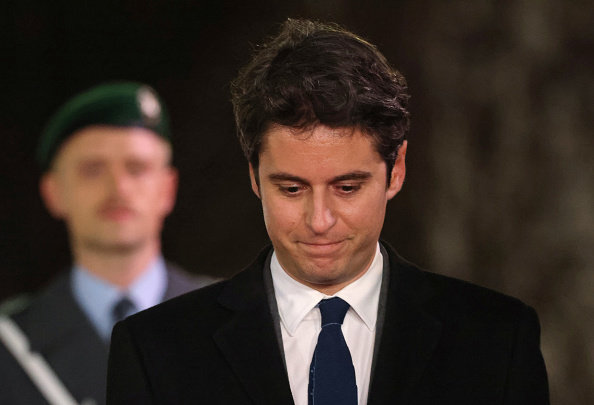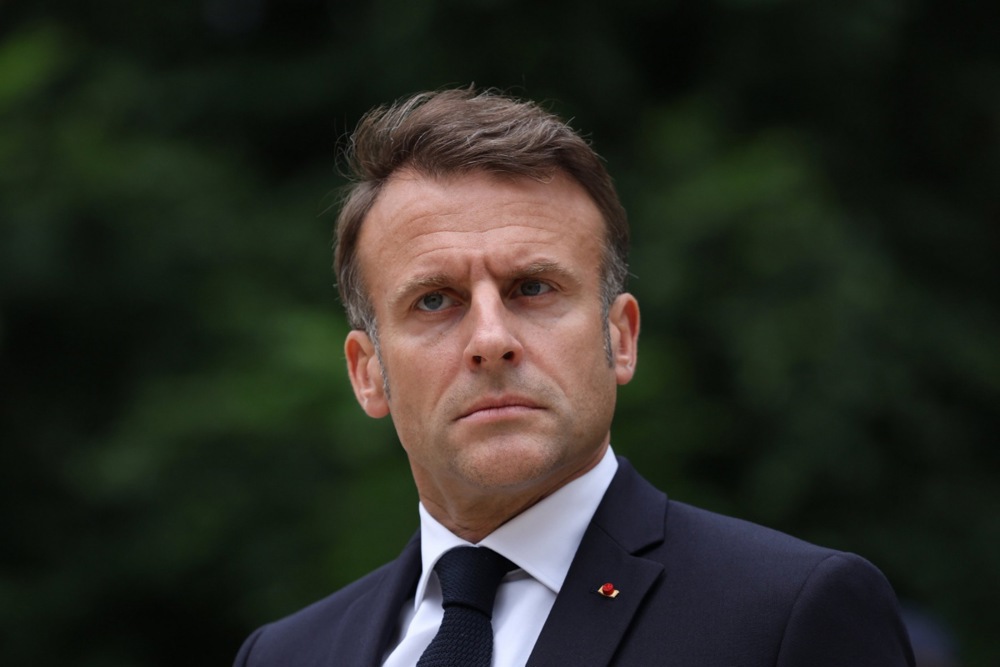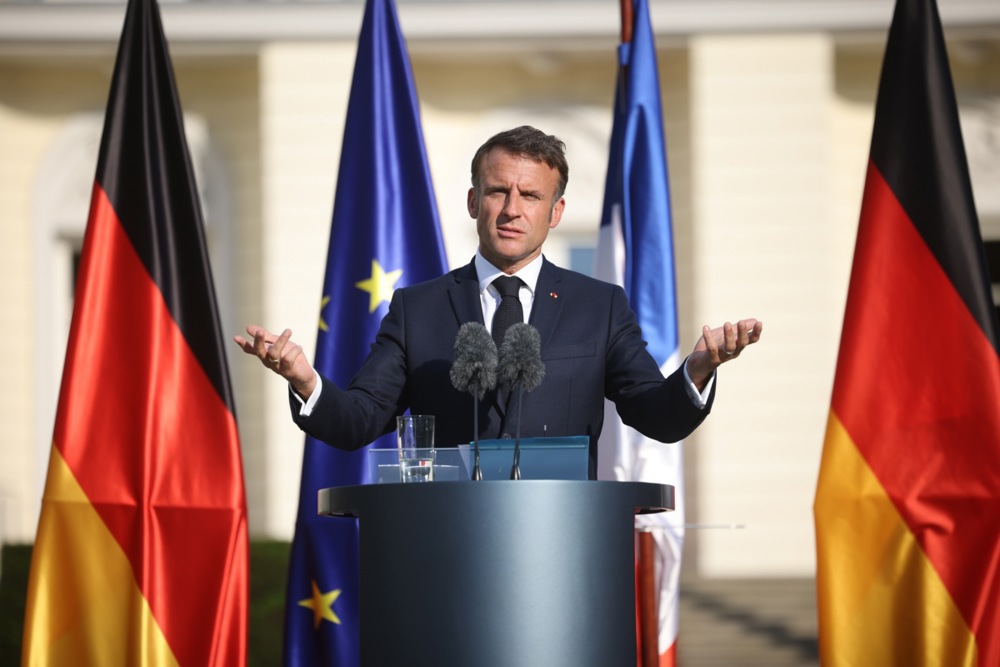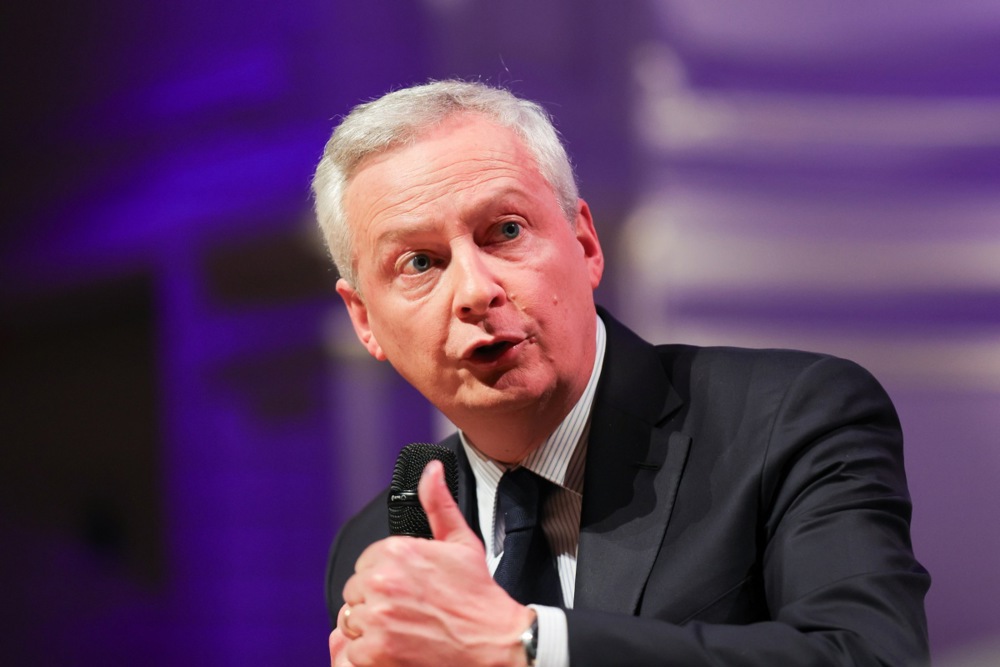A French Government spokeswoman and an MP were attacked while putting up posters on public billboards in Hauts-de-Seine, located in the Île-de-France region.
Eyewitnesses have allegedly told the police that the Quran was referenced shortly before the attack began.
On the evening of July 3, spokeswoman and deputy minister Prisca Thevenot and MP Virginie Lanlo, together with two Rennaissance party activists, were allegedly mobbed by about 15 youths.
Punches were thrown and scooters were driven at them.
One of the activists for French President Emmanual Macron’s party was taken to hospital with a fractured jaw, Europe 1 radio reported, while Lanlo had her arm and leg hurt.
One of the Macronists’ cars was also damaged.
Based on video footage taken by Thevenot, who was not physically assaulted, the police made four arrests. Three of those held are said to be minors.
Speaking to Le Parisien the following morning, Thevenot said she and her crew had noticed a “small group of young people” standing nearby while they were hanging the posters. She said some of the youngsters were “degrading” the election advertising.
“We tell them, ‘without any aggressiveness, that it’s forbidden,’” Thevenot said.
According to her police statement, one of her team was approached by a young man who had been tearing down their posters. He turned to some girls near him and said: “On the Quran, get everyone.”
Europe 1 reported: “The 20-year-old man, already known to the police, left the scene and returned with about 20 people a few minutes later to attack an activist and Prisca Thevenot’s deputy, Virgine Lanlo.
“In addition to this adult, three other minors were arrested, aged 15, 16 and 17, unknown to the police. Of the four arrested, three are French and one Ivorian.”
The Nanterre prosecutor’s office has opened an investigation for acts classified as “violence committed in a group with a weapon, and violence against a public official in a group and with a weapon by intended use”.
According to her entourage, Thevenot intends to continue her campaign activities on the ground as planned until the evening of July 5.
The attack has been condemned across the political board.
“Violence and intimidation have no place in our democracy. They have no place in our Republic,” Prime Minister Gabriel Attal wrote on X. “I express my full solidarity with the candidate and her teams. Let us reject the climate of violence and hatred that is taking hold. I’m calling for a start now.”
Foreign affairs minister and Hauts-de-Seine candidate Stéphane Séjourné said he was “deeply shocked”.
President of the hard-right National Rally (RN) Jordan Bardella referred to the incident on the evening of July 3 and an attack on Marie Dauchy, a candidate for his own RN, the previous day that forced her to suspend her campaigning.
He expressed his full support and said he intended to be a Prime Minister who would restore the authority of the state and considerably toughen punishment for criminals. RN is ahead overall in polls following the first round of the French elections on June 30.
The incident occurred four days before the second round of the French elections on July 7.
J'exprime mon soutien entier à notre candidate Marie Dauchy et à Mme Prisca Thevenot, qui ont été agressées.
J'entends être le Premier ministre qui rétablira l'autorité de l’État, qui durcira considérablement les sanctions, et j'appelle au calme et à l'apaisement. #FaceABFM pic.twitter.com/LNILeRp5ub
— Jordan Bardella (@J_Bardella) July 3, 2024
Thevenot won 39.9 per cent of the vote in the first round in the 8th constituency of Hauts-de-Seine.
Salomé Nicolas-Chavance, a candidate for the left-wing alliance New Popular Front, garnered 30.3 per cent and will go up against Thevenot in the second round.
There have been several attacks on politicians and activists in France in these elections, mostly against RN hopefuls. On June 21, a 70-year-old man suffered a stroke as a result of an assault.
Separately, on the evening of July 3, RN de facto leader Marine Le Pen announced she would sue the authors of a vulgar and insulting anti-RN rap track titled No Pasarán, which also calls for violence against Le Pen and her niece Marion Maréchal. The song, according to newspaper Le Monde, “risks muddying their message”.
France’s schools now face such security dangers from radicalised students that education minister Nicole Belloubet has announced the deployment of a “national mobile force” to try to keep threatened schools safe.https://t.co/mtpIr2JuO4
— Brussels Signal (@brusselssignal) March 29, 2024





